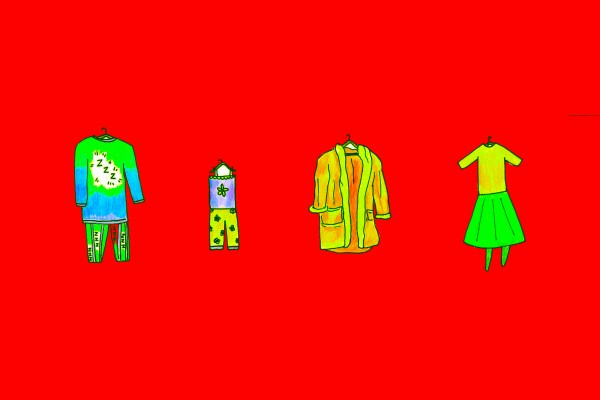Content Warning: sexual violence, child sexual abuse, rape, intimate partner violence
Thursdays in Black have collaborated with Students Against Sexual Violence (SASV) for Rape Awareness Week, bringing the ‘What I Was Wearing’ exhibition back to campus, exhibiting the clothing worn by people when they were sexually assaulted.
What I Was Wearing challenges the myth that the responsibility of sexual assault lies in the victim's actions. In its second year, the exhibition aims to deconstruct the notion that sexual violence only happens to “a certain type of person, at a certain time of day, in a certain situation,” according to the exhibit’s introductory panel.
Clothing donated to the exhibit was pinned to a board alongside a written piece, with survivors telling their story in their own words. Seven different displays are featured, with the youngest story detailing assault experienced at the age of 12. Pyjamas were commonly featured clothing in the exhibit, with a dressing gown being displayed on one board, alongside pants, denim jackets, shorts, singlets and t-shirts.
Both strangers and those close to survivors perpetrated sexual assault. Some displays detailed stories of intimate partner violence. The silence of Union Hall allowed the clothing and the stories of survivors to speak for themselves.
Niall Campbell, exhibit organiser and member of SASV, said the exhibit “can be a healing experience for survivors”. A collective of University of Otago current and former students, SASV are committed to sexual violence awareness, prevention and cultural change. Campbell says that SASV “don’t have a problem critiquing and holding the University to account”.
Tanya Findlater, co-director of Thursdays in Black, says the exhibit is “pretty harrowing … I’m really grateful to the people who donated their clothing and shared their stories; we want people to know that Thursdays in Black is committed to making a change”.
Several volunteers from SASV and Thursdays in Black were stationed inside Union Hall and at the entry desk. “Most people here have been trained in disclosure,” says Campbell, who said volunteers are central to the exhibit as they can offer help and support to those who need it. Due to the distressing content, SASV and Thursdays in Black have a safe space near the exhibit, made available by the Otago Chaplaincy service, alongside a wealth of resources for local and national support networks. Findlater noted that the safe space is “a really key, important part of the exhibit”.
Campbell and Findlater stressed the importance of supporting and listening to survivors. Campbell said, “while survivors are in all different positions and places in their lives, there are people out there who will support them. We want them to know that there is a community out there.” For those who may have not encountered sexual violence before, Campbell wants “people to listen and look at the issue of victim blaming, and the surrounding misconceptions and mythologies of sexual assault, we want to bring these real stories to people.”
If you or anyone you know has been affected by sexual violence, support is available:
Rape Crisis Dunedin: 03 474 1592
Rape Crisis – 0800 883 300 (for support after rape or sexual assault)
Shakti Crisis Line – 0800 742 584 (for migrant or refugee women living with family violence)
Lifeline – 0800 543 354 (0800 LIFELINE) or free text 4357 (HELP)
Suicide Crisis Helpline – 0508 828 865 (0508 TAUTOKO)






